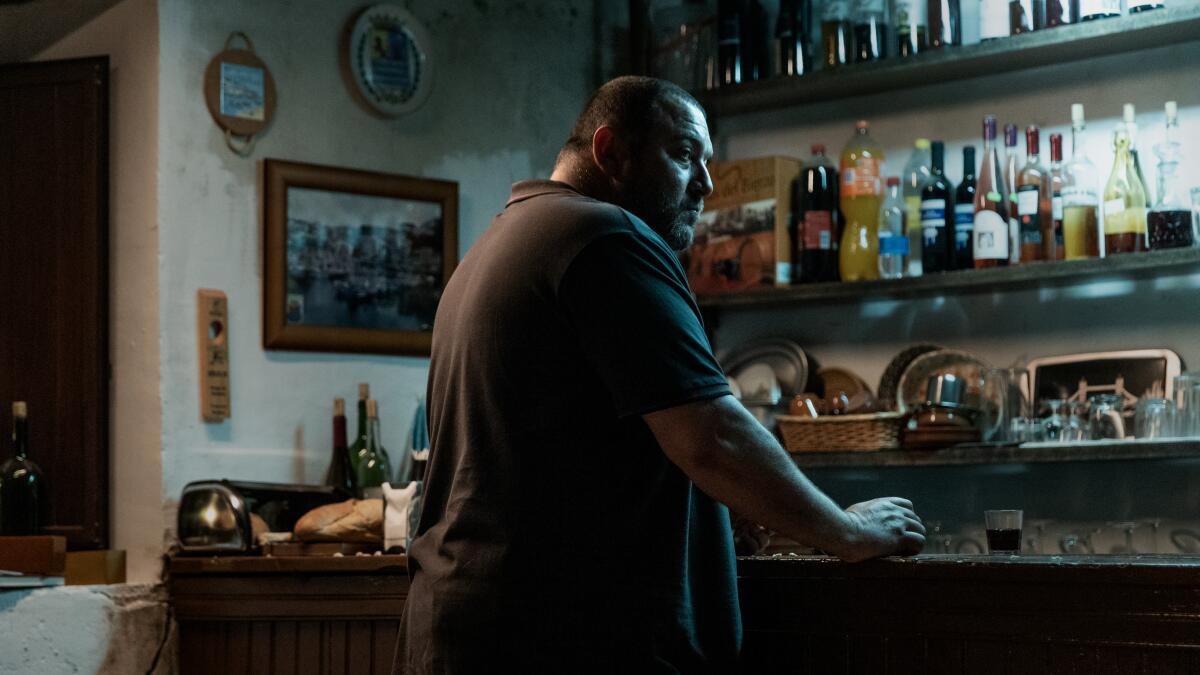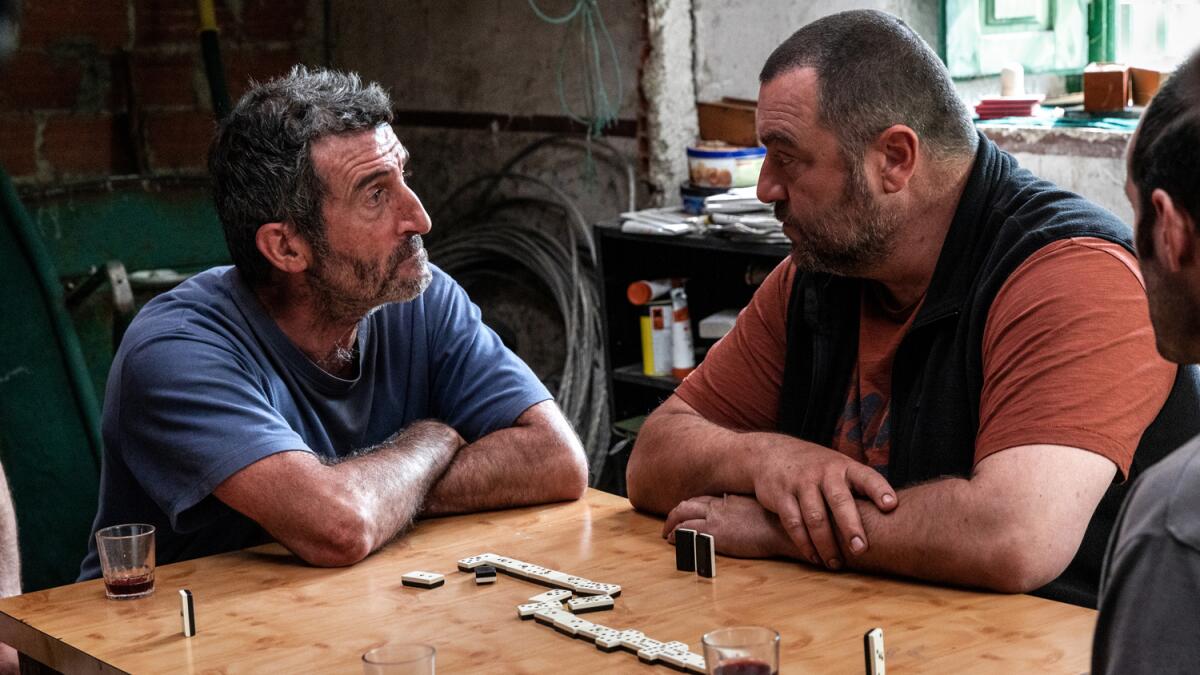In Spain’s ‘The Beasts,’ brutal instincts flare among small-town residents

- Share via
You may remember French actor Denis Ménochet as the farmer in the taut opening scene of Quentin Tarantino’s “Inglourious Basterds,” performing opposite Christoph Waltz. Now, after many international roles, including one in Ari Aster’s “Beau Is Afraid,” Ménochet has won a Goya Award — one of the nine that director Rodrigo Sorogoyen’s blood-boiling thriller “The Beasts” collected at the Spanish Oscars — for playing a different kind of farmer.
In a desolate Galician town, Ménochet’s Antoine and his wife, Olga (Marina Foïs), grow vegetables to sell and rebuild houses, which they then give away for free to encourage locals to stay, and to entice new people to come. But their efforts go against the longtime residents’ eagerness to sell their land for incoming wind turbines. Antoine and Olga’s next-door neighbors, Xan (Luis Zahera), a spiteful drunk who holds court at the area’s only bar, and his cognitively impaired brother Lorenzo (Diego Anido), are their worst enemies.
Hiding thinly veiled vitriol, the siblings refer to Antoine as “Frenchy,” and invoke Napoleon Bonaparte’s military campaign to conquer Galicia as reason enough to dislike him. Antoine’s mere presence feels humiliating to them: His refusal to sell, preventing everyone else from cashing in, makes him a target.
Acting in two languages, Ménochet initially comes across as a beacon of serenity, his burly build notwithstanding. But that slowly morphs into constant exasperation when the siblings poison Antoine’s crops and taunt him at night. The actor conveys the character’s growing sense of anger behind a soft expression of masculinity that hopes to protect and do no harm. He’s at the opposite end of the spectrum from Xan and Lorenzo, ready for a clash.

Still, the Frenchman tries to reason with them over drinks and carries around a small video camera to document his bullies’ behavior. Olga disapproves of her husband’s tactics. What’s the point of living there if they must do so in fear? Early on, Sorogoyen reveals a frustrating dynamic: The authorities side with the brothers, excusing their behavior as that of simple people who, unlike the worldly Antoine and Olga, have nothing left to lose. The burden of civility, the police claim, falls on the couple.
There’s no satisfying resolution in sight for the class conundrum Sorogoyen and his co-writer, Isabel Peña, introduce. Is it fair for these foreigners, well-meaning though they are, to impose their will on several families desperate to escape their miserable circumstances? For those accustomed to abject poverty, even the crumbs being offered the predatory wind-turbine company feel like a life-altering victory.
Antoine and Olga are guilty of gentrifying the place for their loftier dreams of sustainability, yet that still doesn’t justify the primal instincts that drive Xan and Lorenzo. As with all great moral dilemmas, Sorogoyen makes it impossible to entirely side with either party without considering that each of them has been victimized by larger social ills.
And that’s the visceral potency of “The Beasts,” which suggests that in order to take another person’s life, you have to see them as less than human — or less than yourself. For its second half, in the aftermath of a twist that shouldn’t be spoiled, the film takes on an unexpected depth and even a semblance of closure, though it shouldn’t be a surprise that no one fully gets what they want.
'The Beasts'
Not rated
In Galician, Spanish and French, with English subtitles
Running time: 2 hours, 17 minutes
Playing: Now at Laemmle Royal, West Los Angeles
More to Read
Only good movies
Get the Indie Focus newsletter, Mark Olsen's weekly guide to the world of cinema.
You may occasionally receive promotional content from the Los Angeles Times.










